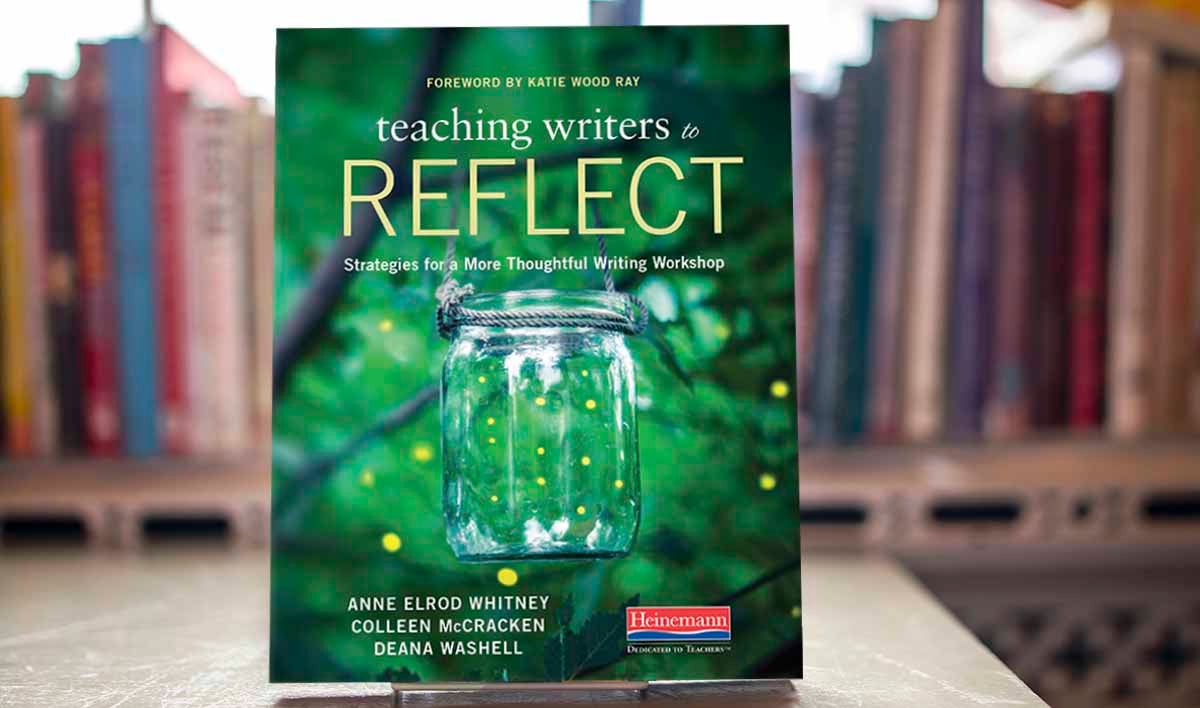 When student writers know how to reflect, they know how to learn from their writing experiences. It’s one thing to experience something, but if the experience is then forgotten or not connected in any direct way to other experiences, how is it useful?
When student writers know how to reflect, they know how to learn from their writing experiences. It’s one thing to experience something, but if the experience is then forgotten or not connected in any direct way to other experiences, how is it useful?
Reflection is thinking about what has happened, making connections among parts of an experience, and naming aspects of it. Reflection is about processing an experience, noticing the feelings and memories it arouses, and linking it up to other kinds of experiences that relate to it (Dewey 1933). Through reflection, experiences are available to think about and learn from going forward, doing more of the same or doing differently as the situation demands. Reflection transforms a student’s actions in the classroom from the empty satisfying of a teacher’s assignments to a real learning experience that not only satisfies the teacher but also builds something lasting for the writer.
What else can we gain from reflection?
- Reflection Builds Community
- Reflection Builds Writers' Confidence
- Reflection Fosters Independence
- Reflection Makes Writing Skills Transferable
Reflection also helps teachers to better know what our students need. When students reflect on writing, they verbalize what they do and do not understand, what they struggle with, and what they did and thought as they worked through a writing problem. This helps us get inside their thinking. Writing is one of those subject areas that’s so difficult to assess—we can look at a product a student has produced, but it’s hard to know what went into it. If you look at a student who is writing, usually all you see is a hand moving or standing still. What is happening inside the mind as that hand is moving? Having students reflect can help us find out, and that in turn helps us make better decisions about how to teach them.
…
Learn more about Teaching Writers to Reflect at Heinemann.com
 Follow us on Instagram @heinemannpub to stay up to date on the latest books, your favorite authors, and upcoming events!
Follow us on Instagram @heinemannpub to stay up to date on the latest books, your favorite authors, and upcoming events!
 Anne Elrod Whitney (top) is Professor of Education at the Pennsylvania State University. Colleen McCracken (center) is a second-grade teacher and Deana Washell (bottom) is a third-grade teacher at Easterly Parkway Elementary School in State College, Pennsylvania.
Anne Elrod Whitney (top) is Professor of Education at the Pennsylvania State University. Colleen McCracken (center) is a second-grade teacher and Deana Washell (bottom) is a third-grade teacher at Easterly Parkway Elementary School in State College, Pennsylvania.






